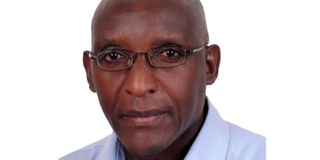Better to be a nation of knitting men than idlers

OKODAN AKWAP
What you need to know:
- Review curriculum. We need to review our education curriculum with the sole purpose of equipping learners with life-long skills. Only then can we meaningfully begin to wrestle down the five giants of social problems we face – poverty, poor education, poor housing, unemployment and ill health.
Prof A.B.K Kasozi, the former executive director of the National Council for Higher Education, has described the two-year Advanced Level secondary education as “a waste of resources.”
In fact, he wants the advanced secondary school curriculum scrapped. (See ‘Scrap A-Level, scholar advises government’ in the Daily Monitor of March 12. Instead, he says Uganda should adopt Kenya’s educational model of 8-4-4. In this system, learners spend eight years at the primary school level, four years at Ordinary Level and four years at university level.
I want to strongly agree with Prof Kasozi. I went to live in Kenya in 1986; a year after the 8-4-4 curriculum was launched in 1985. What impressed me most about the new curriculum was its practical aspect. When we talk of curriculum, we must recognise it as a component that is designed to serve the nation in a particular circumstance. I saw that with the 8-4-4 system, Kenya desired to produce a skilled national human resource.
The idea was to prepare the young ones for a future where they could rely on the skills acquired at school to succeed without necessarily being employed by someone else. That is how Kenyan boys, for example, were taught how to knit sweaters, socks, baby shawls, etc. That is exactly what Uganda needs to see happening now – millions of knitting men instead of the two million youths classified in a recent report as completely idle. How did we get to this?
During our time as secondary school students in the early 1970s, the curriculum was clearly tilted toward giving us practical skills. That is how I came to know by Senior Three that I wanted to be a journalist; our Literature in English syllabus honed our skills of reading and writing.
In his quest for adoption of the 8-4-4 system, Prof Kasozi rests his argument on the matter of making science subjects compulsory at O-Level, yet fewer students pursue science at A-Level. This is what he rightly cites as wastefulness of resources.
Clearly, we need to review our education curriculum with the sole purpose of equipping learners with life-long skills. Only then can we meaningfully begin to wrestle down the five giants of social problems we face – poverty, poor education, poor housing, unemployment and ill health.
In addition to imparting skills at all levels of learning, we need to urgently start the teaching of values in our educational institutions. There is no doubt that our value system is broken. When you look around us, you can clearly see that there are no values passed down from parents to their off-spring. I remember with clarity that when we were growing up in the 1960s, our parents taught us the values of hard work, respect, honesty, etc.
While parents of yesteryears kept a closed eye on what their children did, today’s parents seem relieved to entrust the important aspect of teaching values to someone else. That is why we see children from the tender age of one year learning whatever values they learn at daycare centres, nursery schools and onwards to boarding primary and secondary schools.
Here are some questions that parents should to be asked: Are you a person you would like your child to grow to be like? When you spend the whole day at work and half the night in bars, do you know what your child is doing? Do you spend quality time with your children or are you merely browsing through time?
Okot Nyormoi, one of the readers of a recent article I wrote in Daily Monitor on education, got back to me on what he termed “a crisis in the value system” in Uganda.
“People who are supposed to be custodians of the values of society, via observing and protecting national laws, act without regard to laws and with impunity. Over time, people have learned from leaders that merit, expertise, skills, respect, accountability, etc, no longer matter,” he wrote.
Who wants to argue with that?
Dr Akwap is the acting deputy vice chancellor for academic affairs at Kumi University. [email protected]




